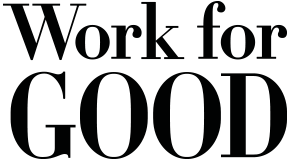Four times a one-page resume can hurt you
Jenny Foss is a career strategist, recruiter, and the voice behind the popular career website, JobJenny.com, which offers advice and services for navigating job searches and career transitions.
Let us talk about the incredibly common belief that no organization will consider you as a serious candidate if you dare submit a two- (or, gasp, three-) page resume. I'm not sure where the myth of the one-page resume is coming from, but it's coming hard and heavy – to the point that many job seekers take it as a known fact: A resume M-U-S-T be one page long.
This is baloney. The fact is, in some cases, it’s nearly imperative to extend your resume beyond the first page. Do not get me wrong: I'm a big believer that every word needs to earn its spot on the page, and that showcasing your capabilities in a succinct and compelling manner should be your number one goal. (This is a marketing document, not your autobiography.) But sometimes, a one-page resume hurts your job search.
If I had a dollar for every time I've had to convince someone they’ve earned the right to another page... but since I don’t, I might as well share some ways to tell if your one-page resume is working against you.
1. You've been in your career for more than a couple of years.
As you roll forward in your career – land new jobs, earn promotions, take on new challenges – you're going to have more to showcase. But to keep the resume to one page forever, many professionals start hacking, tweaking, abbreviating, bumping down the font size, and squeezing things together. Ultimately, they'll cut stuff that they don’t really want to cut.
This is where problems can arise. Reviewers, both software and human, need to connect the dots easily: Leaning too hard on brevity (and/or “fine print”) may mean they won't be able to quickly understand how and why you make sense for the role.
2. You've held several relevant jobs that need to be highlighted.
Wherever you are in your career, you're going to want to highlight all the jobs that add to a compelling story – however numerous. But you also want, as much as possible, to avoid timeline gaps. Rather than striking jobs or saying almost nothing about them to maintain the one-page format, give yourself permission to add a second page.
3. You work on big projects and need to showcase them individually.
This is a common challenge among consultants and project managers, who often work on big, finite assignments that can read like standalone jobs. Often, there's some amazing "meat" within each assignment that can demonstrate how and why you'd make a great addition.
Rather than gloss over them to stay within that magical one page, consider a subsection (like "Select Client Engagements" or "Major Projects") for roles involving big projects, where you can briefly highlight two or three of them.
4. You've got substantial volunteer roles or side projects to mention.
If you're a do-gooder, high-achiever, or active community member, you should not feel pressure to chop that experience from your resume, or be penalized for including them. Evaluate volunteer roles and other community endeavors and consider showcasing the ones most impressive or relevant to your target employer. Certainly, you don't need to list out every thing (if there are many), but don't stress if your "best of" activities list takes you beyond one page.
To be clear: I'm not advocating a multiple-page resume for the sake of it. Of course, craft your content wisely and succinctly – but say what you need to say.
This article originally appeared in a slightly different form on the JobJenny.com blog.



